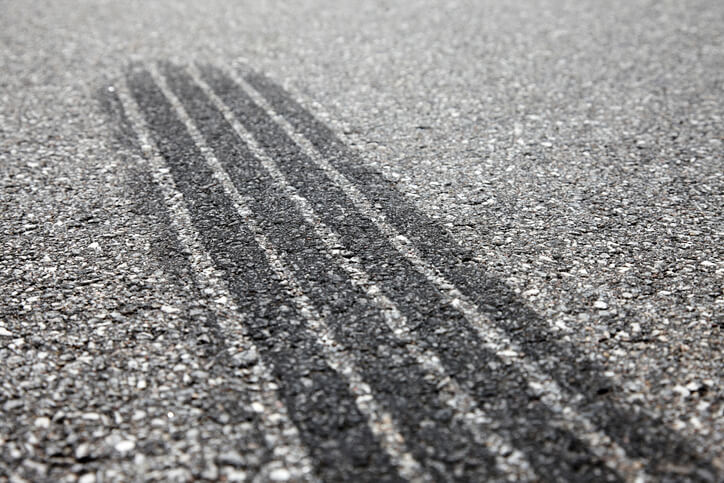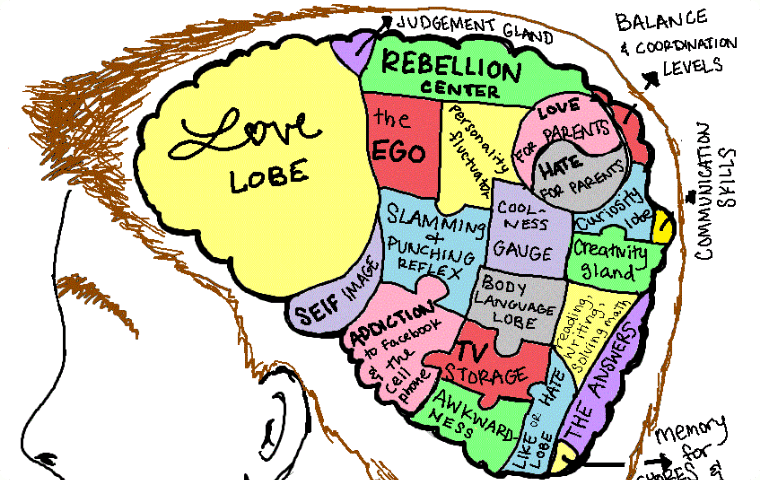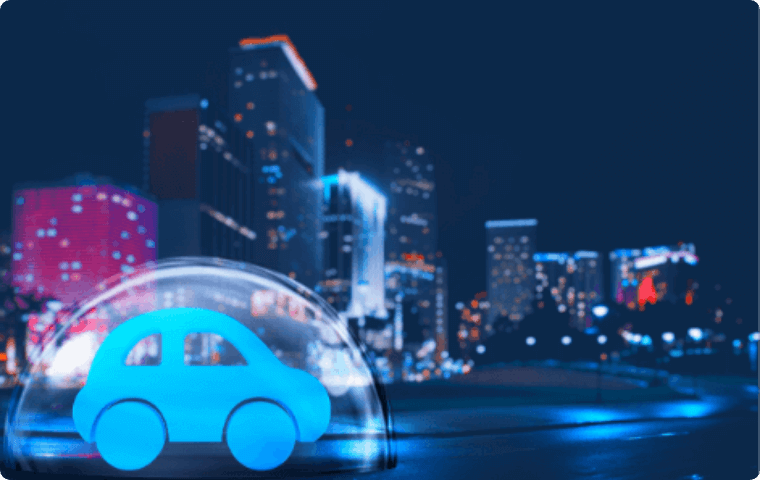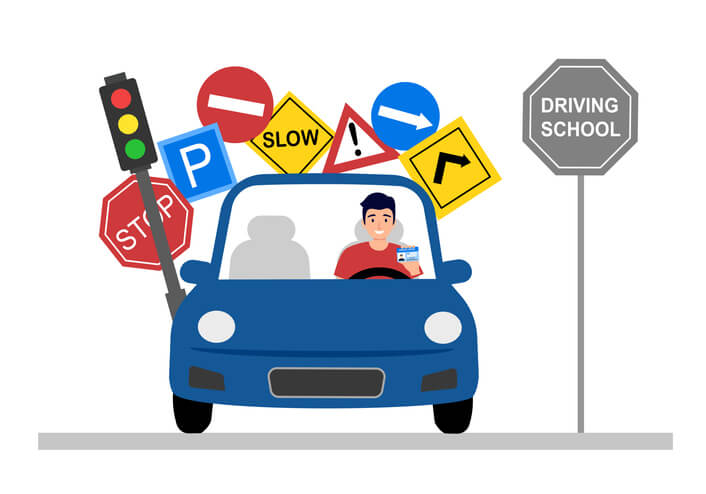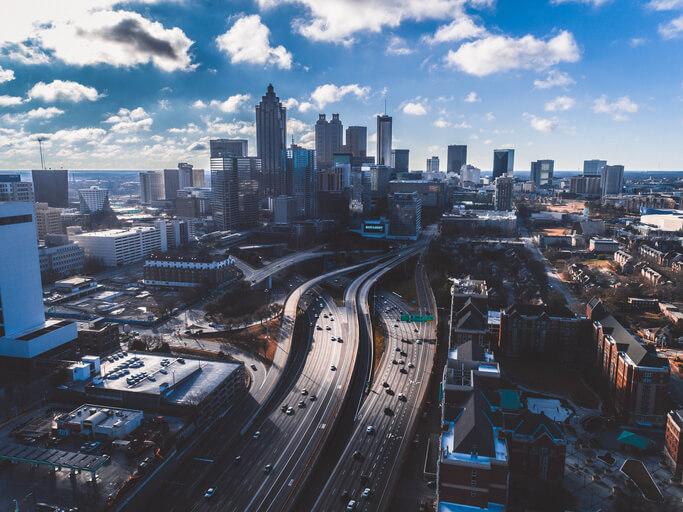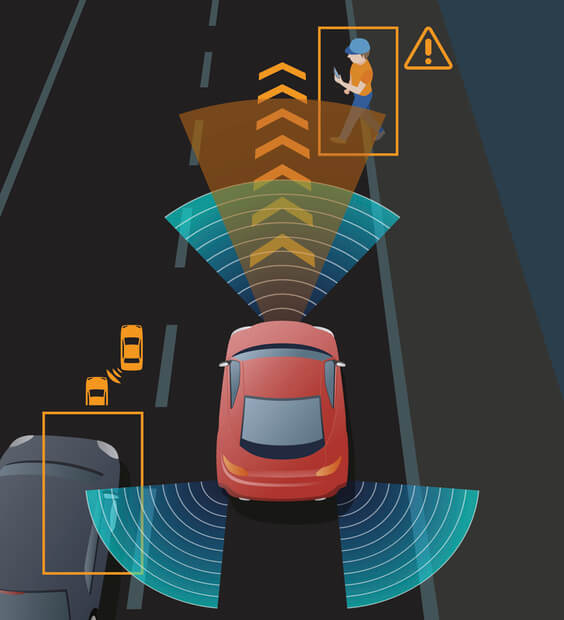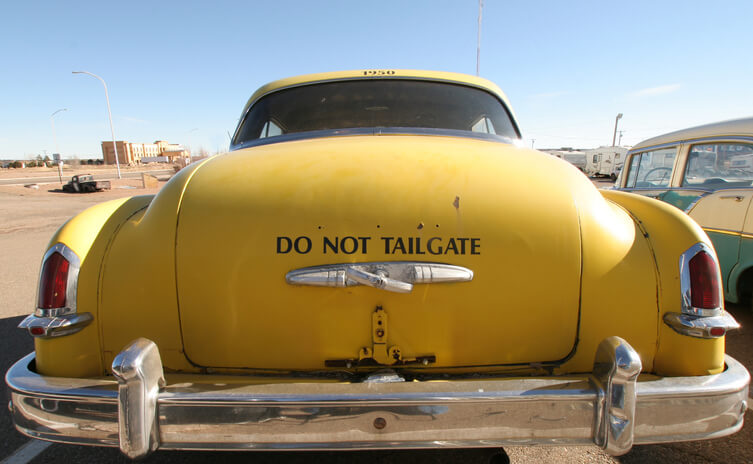Do you feel like you spend as much time with your foot on your brake as on the accelerator? Do you have to spend more time cleaning spilled beverages out of your interior than you'd like? Do your passengers complain about sore necks or seem reluctant to get into your vehicle? If you answered yes to these questions, you might be suffering from hard braking.
Alright, these are rather silly examples, but there's nothing funny about the reasons for and consequences of hard braking. It's a particular concern for new drivers, especially those that have just received their full, unrestricted driver's licenses.
This post-license window represents the most significant risk of a collision that any driver will face at any point in their lives. The same is true for their likelihood of having to slam on the brakes.
So, what are some of the common causes of hard braking, why are they such a problem, and what can you do about it?
Don't break the brake pedal
There are many reasons you might find yourself having to slam on the brakes. The Naturalistic Teenage Driving Study, conducted by a partnership between the National Institute of Child Health and Human Development, National Institutes of Health, and Virginia Tech, wanted to look at new driver habits, specifically in that dangerous window just after receiving their licenses.
Their findings of the reasons for hard braking events show causes broken down into 4 main categories: necessary evasive maneuvers, misjudgments, distractions, and risky driving behaviors. Let’s break, sorry, no pun intended, it down.
Evasive maneuvers: The scary truth about driving is that, outside of your lights, signals, and horn, you have very little influence over the actions of fellow drivers. Sometimes, you’ll have to react to dangerous situations, and some of those situations will require hard braking.
just because you’ve been lucky enough to avoid crashing to this point does not mean you’ll continue to be so fortunate in the future.
Misjudgments: This is a broad term for honest mistakes newer drivers are particularly prone to making behind the wheel. They accounted for roughly 80% of all hard braking incidents observed in the teen driver participants. These include things like:
-
- Following too closely
- Improper turning
- Failing to anticipate traffic lights and stop signs
- Poorly timed lane changes
- Misuse of vehicle equipment
Distractions: It’s not hard to see how distractions can lead to hard braking events. Taking your hands, eyes, or mind off the task of driving leaves you vulnerable and with little to no time to react to risks. Distractions can take many forms when you’re behind the wheel, but the study identified a problem particular to new teen drivers, their teen passengers. This danger is especially present during the first months after acquiring their license, so be particularly careful if you must drive the crew around.
Risky Driving Behavior: These are the not so honest mistakes researchers observed in the teen driver participants. Things like rapid acceleration, speeding, racing stoplights, weaving through traffic, and the like are all simple mistakes, but you still need to try to avoid making them. These behaviors accounted for about 11% of hard braking incidents, and that’s a glaring 11% as these are entirely preventable.
Dangerous practices
The most evident and apparent reason to avoid hard braking incidents is that they’re dangerous.
Whether you’re braking because of a misjudgment, distraction, or risky behavior, you’re putting yourself in a place of unnecessary risk. By the time you’ve had to resort to braking, you’ve already made a mistake and put yourself in a dangerous position. Consistently finding yourself in this situation is an indication that you’re failing to address potential hazards before you have no choice but to slam on the brakes. The best drivers anticipate circumstances that lead to hard braking incidents and avoid them before they become a problem.
Consistent hard braking can also lead to bad habits. Ask any athlete, and they’ll tell you the importance of practicing as you intend to play. Bad practice habits mean poor performance when it’s game time. The same is true when it comes to driving.
If you’re frequently getting into situations that require a hard braking solution, you’re developing risky and aggressive driving behaviors. These kinds of risky behaviors will lead to a collision sooner or later. Just because you’ve been lucky enough to avoid crashing to this point does not mean you’ll continue to be so fortunate in the future.
Bad braking is hard on your vehicle too. Hard braking means you’re in harm’s way when you probably don’t need to be, and you could be damaging your vehicle. You’re putting a lot of strain on your brakes themselves, and the same is true of your tires, frame, shocks… the list goes on.
you have very little influence over the actions of fellow drivers
Raising Awareness
There’s no secret or magic trick to avoiding hard braking incidents. The only way to consistently avoid the need to respond to problems with your brake pedal is to learn to anticipate those problems before braking is your only option.
Driving awareness training and systems, such as DriverZ’s acclaimed S.P.I.D.E.R.Metohd™, are the best way to learn to anticipate dangers on the road and develop strategies to avoid them. Whether you learn via a proven method like this or own your own, focusing on becoming an alert and aware driver is how you’ll keep yourself and everyone else on the road safe.



